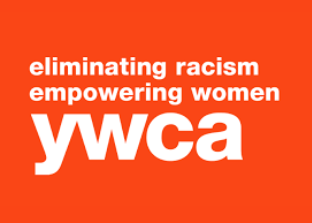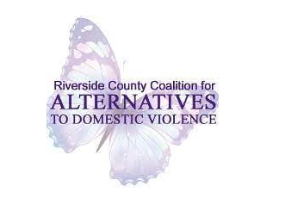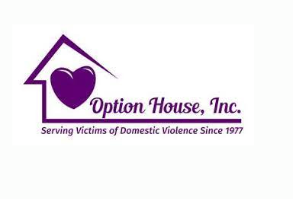Safety
Listed below are trusted shelters in the United States, including those specific to the state of California (i.e. Los Angeles County, Santa Carla County).
-
The National Domestic Violence Hotline listed by the United States Department of Justice is free and confidential.
-
Locations:
National
Language Services:
English
Contact:
Call: 1-800-799-7233
Text: Text ‘START’ to 88788
Our Top Shelters
-
The Child and Family Care Center provides a 30 day crisis shelter, individual and group counseling and classes for victims fleeing domestic violence.
-
Locations:
Santa Clarita- 21545 Centre Pointe Pkwy, Santa Clarita, CA 91350
Palmdale- 38345 30th St. East, C-1&2, Palmdale, CA 93550
Language Services:
English, Spanish
Contact:
661-259-4357 (24-hour crisis hotline)
-
The Interval House is one of the first survivor-led programs, and provides housing programs, counseling, legal assistance, education and specialized cultural programs for those fleeing domestic violence.
-
Locations:
Seal Beach, Los Angeles
Long Beach, Los Angeles
Language Services: 70+ languages
Contact:
562-594-4555
714-891-8121
-
SAHARA directs their support to survivors of all forms of abuse within the South Asian community in Southern California with culturally sensitive and linguistically specific services. They provide support group services, collaborative stress management activities, citizenship clinics, and more.
-
Locations:
Southern California
Language Services:
English, Bengali, Gujarati, Hindi, Nepali, Urdu, Telugu
Contact:
(888) 724-2722 (24-hour hotline)
-
My Sister’s House specifically serves the needs of the highly diverse Asian and Pacific Islander population in the Central Valley region provides a safe, and culturally appropriate emergency shelters to women and children fleeing domestic violence, sexual assault, and human trafficking. Clients of all ethnicities can stay at the shelter for up to 90 days and are provided with basic food and supplies, case management and support.
-
Locations:
Sacramento County
Language Services:
Arabic, Bengali, Chinese, English, Filipino, Hindi, Hmong, Indonesian, Japanese, Khmer, Korean, Lao, Malay, Mongolian, Nepali, Punjabi, Russian, Spanish
Contact:
(916) 428-3271 (24-hour hotline)
-
The National Coalition Against Domestic Violence has tips for seeking help from law enforcement, tips for seeking legal assistance and tips for making a safety plan for dealing with abusers available on their website.
-
Locations:
National
Language Services:
English
Contact:
Call: 1-800-799-7233
Text: Text ‘START’ to 88788
National Shelters
-
The National Domestic Violence Hotline listed by the United States Department of Justice is free and confidential.
-
Locations:
National
Language Services:
English
Contact:
Call: 1-800-799-7233
Text: Text ‘START’ to 88788
-
The Child and Family Care Center provides a 30 day crisis shelter, individual and group counseling and classes for victims fleeing domestic violence.
-
Locations:
Santa Clarita- 21545 Centre Pointe Pkwy, Santa Clarita, CA 91350
Palmdale- 38345 30th St. East, C-1&2, Palmdale, CA 93550
Language Services:
English, Spanish
Contact:
661-259-4357 (24-hour crisis hotline)
Shelters In Los Angles County
-
The House of Ruth is an LGBTQ+ friendly organization that provides emergency shelter, counseling, housing assistance, legal advocacy, child care and treatment programs for victims of domestic violence.
-
Locations:
Claremont, Los Angeles
Language Services:
English, Spanish
Contact:
877-988-5559 (24-hour toll-free hotline)
-
The Institute for Multicultural Counseling and Educational Services works with courts, probation departments, and shelters to help prevent and respond to domestic violence. Provided services include education, counseling and crisis intervention.
-
Locations:
No physical location, legal aid services
Language Services:
English, Armenian, Farsi, Spanish, Russian, Korean
Contact:
213-381-1250
-
WSLB hopes to eliminate domestic violence through compassionate intervention, education and personal empowerment. They provide free and confidential services, immediate safe housing, and trained domestic violence advocates.
-
Locations:
Long Beach, Los Angeles
Language Services:
English, Spanish, Cambodian
Contact:
562-437-4663 (24-hour confidential hotline)
-
The Antelope Valley Domestic Violence Council/ Valley Oasis is a LGBTQ+ friendly community based organization dedicated to eliminating social and domestic violence and homelessness through community awareness, intervention, prevention, safe shelters, and supportive services.
-
Locations:
Antelope Valley, Los Angeles
Language Services:
English, Spanish, American Sign Language
Contact:
(661) 723-7772
24 Hour DV Shelter Hotline: (661) 945-6736
-
The Interval House is one of the first survivor-led programs, and provides housing programs, counseling, legal assistance, education and specialized cultural programs for those fleeing domestic violence.
-
Locations:
Seal Beach, Los Angeles
Long Beach, Los Angeles
Language Services: 70+ languages
Contact:
562-594-4555
714-891-8121
Shelters in Santa Carla County
-
Community Solutions provides a comprehensive spectrum of prevention, intervention, treatment, and residential services to help individuals overcome the challenges posed by mental health issues, substance abuse, trauma, severe family dysfunction, sexual and domestic violence, and human trafficking.
-
Locations:
Gilroy, CA
Language Services:
English, Spanish
Contact:
Sexual Assault & DV Crisis Line: 1 (877) 363-7238
Youth & Family Crisis Line: (408) 683-4118
Office: 1 (408) 842-7138
-
YWCA phone services include healthy relationship education, crisis counseling, safety planning, shelter screenings, lethality assessments, legal information and referrals. They also provide sexual assault response teams, housing support, child care centers, and education services.
-
Locations:
Santa Jose, CA
Language Services:
English
Contact:
(800) 572-2782 (24-hour crisis hotline)
-
Next Door Solutions provides a 24/7 emergency shelter with safe housing and crisis counseling for women and their children. They are focused on addressing the need for long-term housing and support services for domestic violence victims and their children.
-
Locations:
San Jose, CA
Santa Clara, CA
Language Services:
English, Spanish
Contact:
408-279-2962 (24-hour crisis hotline)
-
The Women's Transitional Living Center provides a comprehensive residential program, a children’s program, and a community services program to all victims of violence in Orange County. They are also an LGBTQ+ safe zone.
-
Locations:
Orange County
Language Services:
English
Contact:
877-531-5522 (24-hour helpline)
Other Shelters In California
-
Alternatives to Domestic Violence provides emergency housing, individual and group counseling, education on life skills and job training, child services and training for professionals to recognize the signs of domestic violence. They also provide anger management treatment for perpetrators, and information about the warning signs of domestic violence.
-
Locations:
Riverside County
Language Services:
English
Contact:
“For those in the city and out of the county”: 909-381-3471 (24-hour hotline)
“For those in the county”: 800-339-7233
-
Laura's House provides residential shelter services, transitional housing, counseling and workshops, and legal services to thousands of individuals.
-
Locations:
Orange County
Language Services:
English
Contact:
Call: 866-498-1511 (24-hour hotline)
Text: Text "HEART" to 949-484-8440
-
Option House in San Bernardino provides support groups, parenting classes, restraining order services, emergency crisis shelter, therapy and tips to educate yourself on the warning signs of abuse. Special resources are available for elder abuse and LGTBQ+ people.
-
Locations:
San Bernardino County
Language Services:
English, Spanish
Contact:
909-381-3471 (24-hour crisis hotline)
-
Your life and safety, as well as the safety of your children, are paramount when leaving an abuser. If you can prepare ahead of time, it will be helpful for you to carry important documents in addition to cash, clothing, medication, and other essentials.
Birth certificates, Social Security cards, and travel documents for you and your children, if applicable.
Cards for both you and your children's health insurance
Financial documents, such as current bank statements, stock or mutual fund records, and more
Any retirement plan statements
Tax returns over the previous two years
If you can't access your phone or address book, have a written copy of any vital phone numbers or addresses.
Documents pertaining to housing, such as leases, mortgage statements, or the title or deed
Most current credit report you have (you can request one for free )
The title or lease for your vehicle
-
There is still a safe alternative available to you even if you don't have a friend or family member to turn to. For a woman who has a violent relationship, a domestic violence shelter—also referred to as a women's shelter—provides a secure location. There are also countless shelters that will provide help to you regardless of your age, gender, or sexual orientation. As its location is typically private, an abusive partner would have a difficult time discovering it. Women and children can stay at these shelters.
Locate a women's shelter in your area. Help is available if you need to leave your abusive partner in order to protect your safety and wellbeing. Visit the website or call the National Sexual Assault Hotline at 800-656-HOPE (4673), available twenty-four hours a day, seven days a week.
-
It is typical for the abusive partner to take financial control in abusive relationships. An abusive partner can frequently forbid you from working outside the home or communicating loved ones.
The National Domestic Violence Hotline, which is available around-the-clock at 800-799-SAFE (7233), can help you locate the closest shelter regardless of your financial status. Staying at a domestic abuse shelter is typically free of charge.
Many domestic violence shelters offer transportation assistance to their facilities. Call the shelter to inquire about assistance with transportation if you are already in a temporary but secure location.
-
Your options for leaving an abusive relationship safely can be discussed with a variety of people. It could be dangerous if your abusive partner learns that you're considering leaving. Be sure to exclusively discuss your plans with those who won't notify the abuser:
Your physician or a nurse. Try to visit the doctor or nurse without your partner since most people go to the doctor at least once a year for a checkup. If your companion insisted on coming along, try notifying the office personnel in writing that you prefer to visit the doctor or nurse alone. Alternatively, explain to your partner that you require seclusion in order to discuss a woman's health concern that you feel ashamed to bring up. Alternately, say to your partner in a place where people can hear you that the doctor only allows patients in the exam room.
A school principal, guidance counselor, or teacher. An adult at your child's school can assist you in making connections with local shelters and other secure locations. Helping the families of the students they educate is a goal of teachers and other staff members at your child's school.
Human resources. If you work outside the house, your employer's human resources (HR) division might be able to put you in touch with an employee assistance program (EAP) or other community resources.
A free 1-800 hotline number. You can speak to trained advocates at the National Domestic Violence Hotline for free, twenty-four hours a day, seven days a week, without disclosing your identity or address. You can talk about how to end an abusive relationship with the counselors. There is always a helpline you may call. Be sure to follow online safety guidelines to prevent the tracking of your search and browser history.
-
You can be overwhelmed with uncertainty, fear, or simply overpowering feelings when you are considering leaving your partner. This is perfectly normal. However, it is crucial to keep in mind:
Domestic abuse frequently begins as emotional abuse before evolving into a violent nature of abuse. The effects of abuse worsen over time and can potentially be fatal. It is important to identify your situation to seek assistance as soon as possible.
It's possible that your partner will try to blame you for the violence. It isn't. Nobody is being forced to harm or mistreat you. Your partner is in full control of their own actions. The abuse and violence that you may experience is never your fault.
Abusive behavior should not be accepted. You find yourself believing that your partner's abuse of you is a sign of their love. This is never true. Abuse is not an indication of your partner's love, even if they do love you. In a healthy relationship, there is no physical, sexual, mental, or verbal abuse. If you don’t feel safe around your partner, you should consider why, and look out for the warning signs that may be normalized within a relationship.
Everybody can experience abuse. Some men and women think they will never be the victims of abuse. No matter your age, gender, sexual orientation, neighborhood where you live, level of education, marriage status, or if you're single, dating, or in a relationship, abuse can happen to anyone.
Your partner might treat you well on occasion. It is typical to see a pattern in abuse. A violent action that is quickly followed by them apologizing or trying to make you feel unique and cherished. Statistics show that this pattern of abuse will almost certainly repeat itself and gets worse with time. Even if your partner says they will stop the violence, you should research the resources available to you.
-
Choose a safe friend or friends and secure locations to stay at. You can also warn your friends, relatives, or neighbors that you are in danger without the abuser learning by using a code phrase. Choose a hidden spot where they can pick you up if at all possible.
Keep a backup phone close by. Avoid using your house phone or a shared cellphone to request assistance. The numbers might be traced by your spouse. You can purchase a prepaid cellphone if you don't already have one. Mobile phones are provided by some domestic abuse shelters.
While you gather knowledge and be ready, take precautions for your online security. To download information, use a computer or phone belonging to a friend, a public library, or both. Otherwise, your spouse might be able to follow your planning.
If you decide to leave your relationship, try to take any proof of abuse or violence with you. Threats from your partner may be included in this. Copies of police and medical reports could be included. It can also have images of your wounds or house damage.
With an external thumb drive, save duplicates of all your paper and digital documents. If you find yourself in a situation where you have to quickly leave, you may not have the time to gather important documents. Having accessible duplicates can be helpful, but not a priority in a dangerous situation.
-
Transitional housing may be the following phase. Each family lives independently in a separate unit in this style of housing. A family might find shelter and time to heal from domestic violence. The shelter can assist you in locating temporary housing.
The services provided by these facilities could be:
Counseling groups for support
Job training Legal assistance
Childcare
Assistance with locating affordable and stable housing
-
It's difficult to end a relationship. It's possible that you still care about your relationship or believe that things will turn around. Leaving could also be frightening or difficult because:
Our spouse or partner might share parenting duties with you.
You may feel as though you have nowhere to turn because your partner has cut you off from your friends and family.
You can feel that you have no resources to leave since your partner controls the finances.
It's possible that your partner has threatened you or your kids.
There may be a sick child or elderly relative who needs your care.
Your bad health could be a result of an illness or injuries sustained in domestic abuse.
You can be worried about spending the rest of your life alone or still harbor affections for your partner.
You don't want to interfere in your kids' lives.
These are all valid reasons for being frightened. However, it is important to assess the severity of your situation, and what you need to reach a healthy place. Especially if you are in need of immediate help, overcoming that fear to leave and seek help is the best choice you have.
Questions to ask yourself before leaving an abusive relationship.
Leaving an abuse relationship is difficult. Understanding your resources—- who you can trust, where to find shelters and housing, and how to manage the grief and anxiety that may follow. Below are several answers to questions you may want to ask yourself before leaving.



















